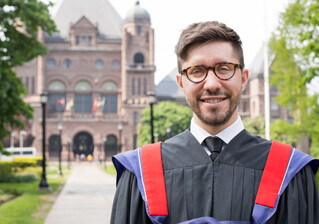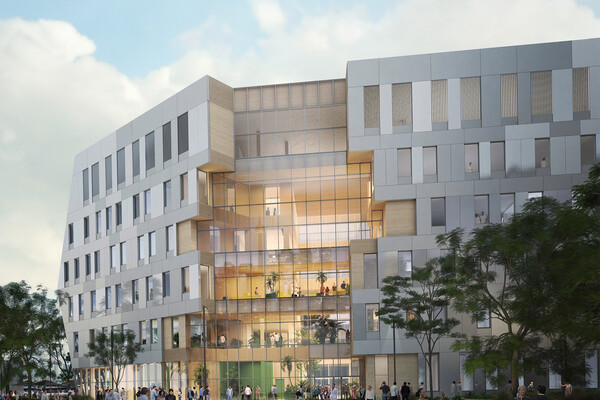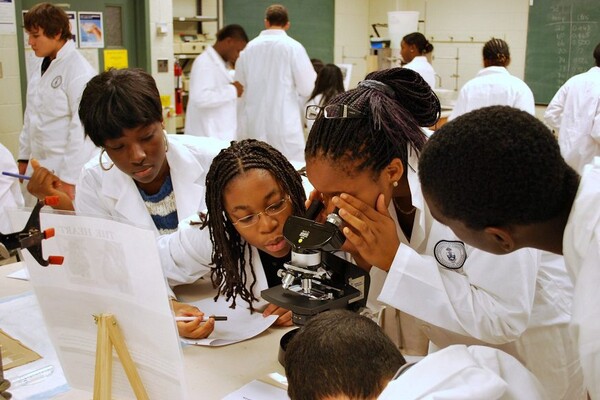Mobile Menu
- Education
- Research
-
Students
- High School Outreach
- Undergraduate & Beyond: Community of Support
- Current Students
- Faculty & Staff
- Alumni
- News & Events
- Giving
- About

A French surgeon once said that health is life lived in the silence of the organs, that you only truly understand health when you lose it. It was like that for me. I was 23, life was good, and then one summer I had an accident that changed everything.
I grew up in Kapuskasing, the pulp and paper mill town in Northern Ontario. Near the end of the my undergraduate degree, I was working at a mill to help pay for school. I can still remember vividly the careless moment when I ripped off part of the palm of my left hand.
At the hospital, I got lucky. The only general surgeon in our town had experience in plastic and hand surgery. He had been trained in Africa and couldn't get a job in his specialty in Toronto. He didn’t speak a lot, but he was just so calm. I admired him. I thought I was going to lose my hand, but he saved it.
It was a turning point for me. I realized that I was interested in the experience of being ill or vulnerable and helping someone come through it. When that’s not possible, there’s still a lot of beauty and learning in the experience of trying. For me, and I think probably for a lot of people, that first moment of vulnerability teaches an important part of what it meant to be human.
That’s what made me think I’d like to be a doctor.
It was a tough decision— I was an economics major, in love with the social sciences, and I didn’t know if I could give that up. I moved on to studying health policy and economics at the London School of Economics, and was struggling between going into medicine and doing more work in health policy. But another random moment made me realize I didn’t have to choose. At the library one day, I picked out some short stories by the Russian writer Anton Chekhov. I loved his writing, and said ‘who is this man?’ I found out he was also a physician. It was the perfect example of the hybrid I was looking for, someone who said ‘I can do two things’
The more I looked at it, I realized a lot of physicians do other things, too: they research, teach, write, work in public policy, and serve in government. U of T was a great place for that— there’s exposure to a lot going on in town besides medicine. We’re right next to Queen’s Park, the seat of Ontario’s government, for example.
Medical school was also amazing because it helped me hear the patient’s voice and move away from the abstracts of policy. You hear people say they don’t have access to decent housing or employment and you can see that it’s making them sick. You really get a sense of where health care and public policy meet —and where they don’t.
Studying medicine gave me a real thirst to learn more about how to improve the health of Canadians and our health system. I learned that we apply a lot of Band-Aids in medicine, but we need to stop people from getting sick in the first place. Social and economic factors like access to decent housing and income security really determine so much about health. You hear a lot of talk about wait times and physician accessibility. But improving the health of Canadians could be about creating more progressive fiscal or tax or education policy.
That’s why I want to keep studying. Next, I’m off to Cambridge University as a Chevening Scholar for a Master’s in public policy and will also be an Action Canada Fellow. I’ll be learning about systems at a very high level, I’m sure – but I suspect the experience of treating patients, and just as importantly, the experience of being one, will be the best education I could have.
Jesse Kancir, 29, is convocating on June 3 with an MD from U of T’s Faculty of Medicine. He serves as president of the Canadian Federation of Medical Students, 2013-14
(Below: Jesse at the pre-convocation ceremony)

